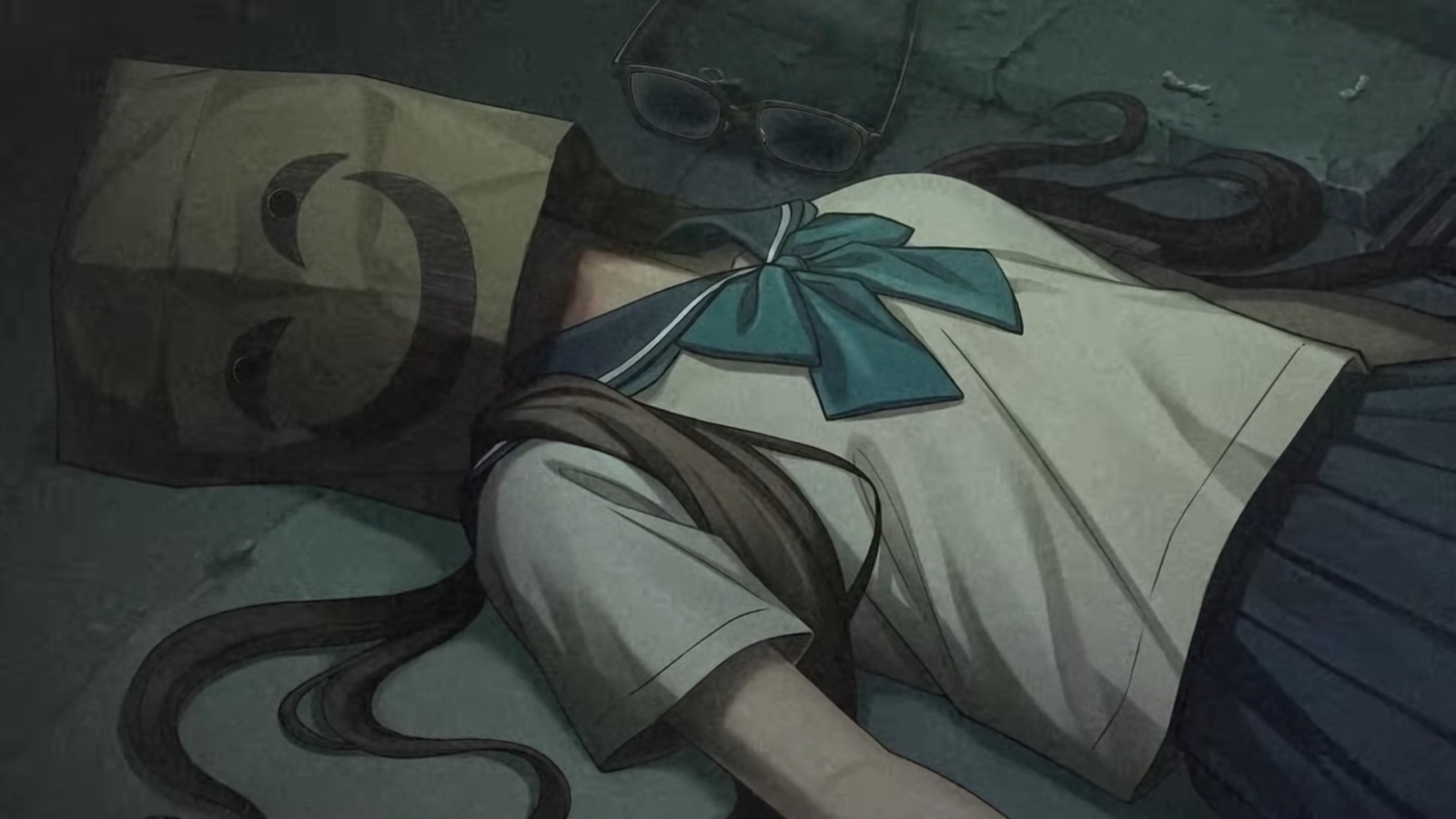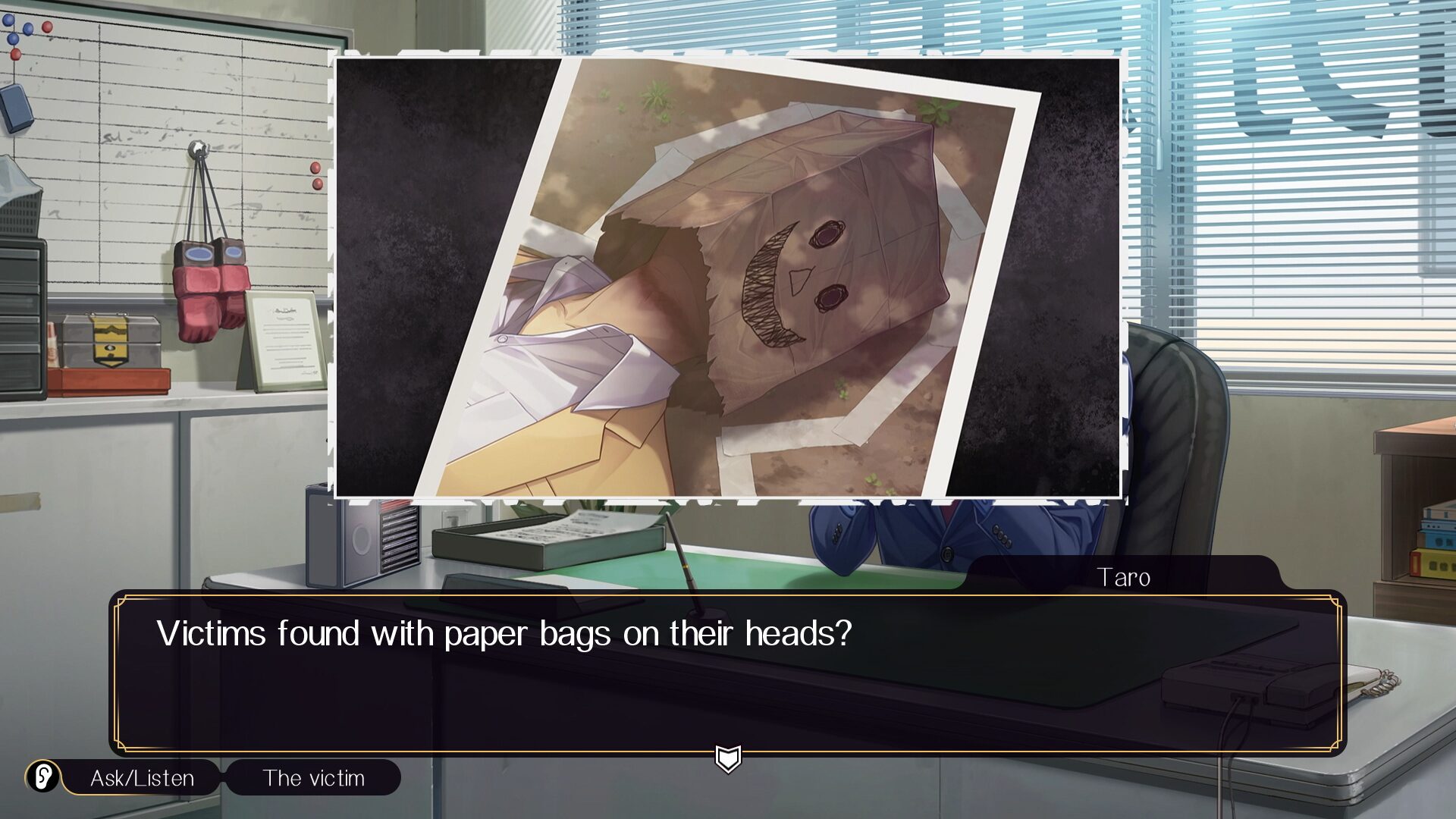Official Review
Right from the start this game sets up its dark mystery. There seems to be a serial killer on the loose. He (we assume) went on a spree to kill a bunch of young girls 18 years ago, which gave rise to the urban legend of the "smiling man" – he wears a paper bag over his face and he approaches girls that are crying. He then kills them and puts a smiling paper bag over their head.
Fast forward to today and a young boy has been killed and also had his head shoved into a paper bag. But is it the same killer? If so, why the shift his taste for killing away from girls? And why the paper bags? There's a lot of mystery here and it's very Edogawa Ranpo.

This makes sense too, given that Edogawa Ranpo was famous for his "boy detectives club," and this little series is "Famicom Detective Club." There's no way this is a coincidence. So for those who haven't had the privilege of reading his work, Edogawa Ranpo was heavily inspired by the mystery work of Edgar Allan Poe ("Edogawa Ranpo" is a pen name and a Japanese derivative of Edgar Allan Poe). A lot of his work does focus on using deduction to solve a seemingly impossible crime, and could be likened in some ways to the Western take on Arthur Conan Doyle, though Ranpo's work tends to have a more supernatural tone and grotesque quality.
All of these narrative and thematic qualities play a big role in Emio. Meanwhile, the "gameplay" largely gets out of the way to allow you to enjoy that narrative for its strengths. The entire game is focused on following a trail of breadcrumbs by choosing the right things to say, making observations and then deductions. This plays out through a menu interface, giving you options like "talk," "look" "use phone" and so on. It's a very retro-style point-and-click adventure game when you get down to it.
This does, unfortunately, mean there are times when you'll be trial-and-erroring your way through, simply selecting every option in the menu and waiting to see which will progress the narrative. The developers have included a "think" option, which will cause the protagonist to muse on the case and drop you a clue on what to do next. There's also a notebook that kills up with the facts of the case that fills up over time. Between those two features, you'll get stuck less frequently than in the previous Famicom Detective Club games. But it'll still happen a little and thank goodness that this is a visual novel then because there's little consequence to guessing your way through those bits.

The big advantage to this being a new production, rather than a remake of two titles from decades ago, is that storytelling has significantly advanced over the years, and consequently Emio comes across as offering a far deeper and richer narrative. It takes its time to muse over the psychology of the killer, the characters themselves are more rounded and realized, and the writing is more vibrant than efficient.
This is a very mature narrative – it's not explicit in the same way that the very adult Spirit Hunter (Death Mark & Ng) horror mystery titles are, but the game also doesn't pull punches in describing the extreme violence and psychopathy of a serial killer. At first, the dark narrative does seem to clash with the rather bright anime aesthetics, but as you play on that contrast actually starts to work, in that it creates a visual and thematic dissonance that helps to build unease in the events that you're witnessing.
Those production values are also exceptional, with gorgeously rendered characters, richly detailed backgrounds, and a surprisingly significant amount of animation that helps breathe life into what is, boiled down, a very traditional visual novel experience with a lot of reading. The VN genre so rarely gets the big budget efforts – Idea Factory games are gorgeous, but static and rely on the talent of individual artists rather than the budget to pull together a more complex game. Experience Inc does an exceptional job with Death Mark, but struggles financially. Nintendo, meanwhile, has the resources to make something of this series, and the presentation fully reflects Nintendo's capabilities.

To say anything else about Emio would be doing you all a disservice, as it's a winding, twisting mystery that is best enjoyed unspoiled. If you did play the remakes of the first two Famicom Detective Club titles then you'll get more of the same here, just with modern standards of writing. That alone makes it a much stronger experience, because the narrative in this thing is incredible.

